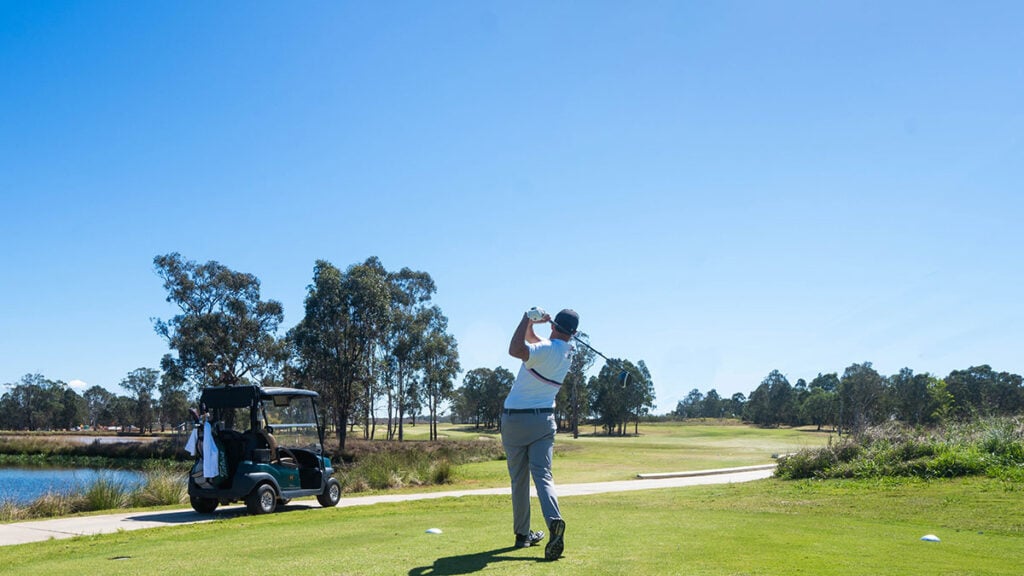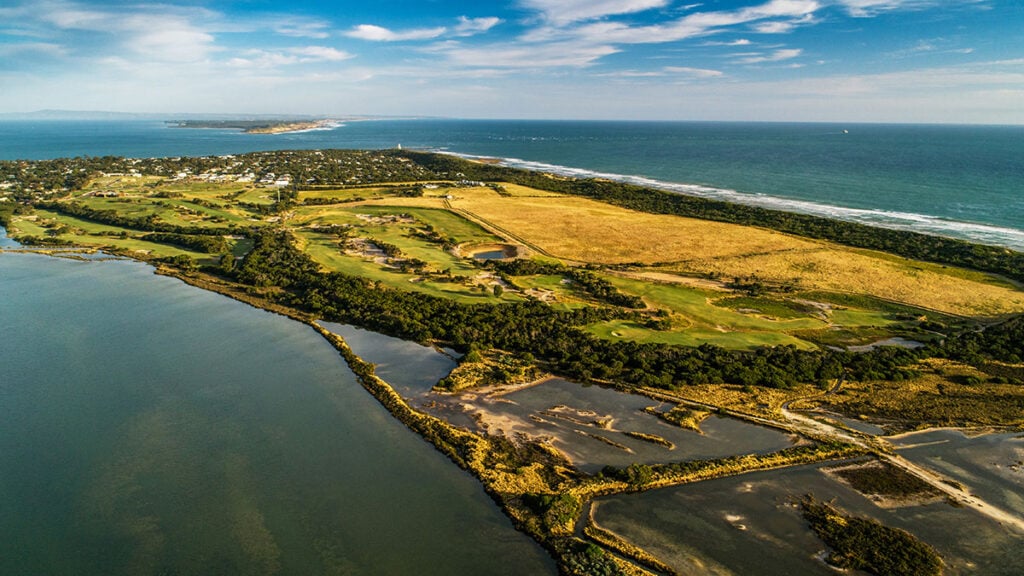Reports of the death of the corporate golf day have been greatly exaggerated.
The venerable Peter Thomson once said you only needed to play four holes of golf with someone to gain an insight into his or her character.
Like many utterances from the great man over his almost 90-year journey, it was so simple yet so perceptive. In a roundabout way, too, it might also help to explain why the time-honoured corporate golf day – although admittedly being re-shaped and presented in a slightly different format these days – continues to survive, if not thrive.
To our surprise, and in spite of competition for less time-consuming ways to entertain valuable clients, golf is still holding its own. But corporate days are now offering more tailored packages: it no longer takes a whole day out of your work or family schedule. Some events are so well tailored you can be back in the office after lunch.

Gone are the days of corporate largesse and over-the-top spending. But businesses still want to find out if a client is one with whom they wish to establish a relationship. That’s where golf continues to hold sway over other forms of corporate entertainment of valued clients. You spend roughly four hours with a client on the golf course. But very little of that time is spent actually playing a golf shot. The rest is just walking and talking.
It is much easier than yelling across a bicycle path or above the din of the crowd at a sporting event. And you can’t even talk during the big tennis events.
Here are three very different perspectives on the state of the corporate golf day. By all accounts, it appears reports of its ‘death’ are premature to say the least.
The Broker
Matthew Devenish owns and operates the Melbourne Business Golf Group, a company specialising in corporate golf days. The company is affiliated with the Sydney and Hunter business golf groups in New South Wales. The business is holding up extremely well.
“We run a yearly schedule of corporate golf days in those three areas,” he says. “Our customers can buy groups of four, eight or 12 in the events. Often a business that buys a number of spots will also sponsor the day’s event. And they are playing with other businesses and their clients on the same day.”

Devenish says golf is still recognised as a way of networking and building relationships with your clients and many other people. “That tradition has not changed.”
He started his business just a few months after the GFC and companies had to find a way that was “easy and economical to play golf with clients”. It led to Devenish’s company doing things a little bit differently. A lot of companies preferred to buy a number of spots rather than run a stand-alone golf day. “We’ve tried to make it flexible and easier for the corporates to keep using golf entertainment for clients.”
Devenish says his customers are the same ones who take their customers to the football codes, cricket and the tennis. “So in a way we are all fighting for the same dollar,” he says. “We certainly understand we are not the only way people can entertain clients. Golf is another way to engage, participate and talk to your clients in a relaxed manner, finding out what they’re like and if they are the sort of people you want to do business with.”
Devenish says his company has also managed to streamline the “speed of the day”. Gone are the long dinners, auctions and endless pre-dinner drinks. “We are mindful of people being time-poor and having other demands placed on them. We usually have people done and on their way by 6pm. More and more people are busy and like to do things more quickly.”

The Sandbelt Experience
A number of courses have designated corporate days. Peter Vlahandreas, the general manager of Yarra Yarra Golf Club, says his club hosts about 50 a year, ranging from smaller personalised events to traditional 120-player fields.
“Corporate golf is stable for us, but we are seeing trends of lower numbers and lower per-head spends,” Vlahandreas says. “The 100-person golf day is becoming a rare opportunity. Clients are now looking for bespoke experience-based events for fewer golfers, but higher per-head spends than traditional golf days.
“Our members embrace corporate golf days and accept they are an integral part of our operations and business model.”
The Lower Profile Club
The story is not quite as optimistic for Wayne Lucas, general manager at Eagle Ridge on Victoria’s Mornington Peninsula. He says he would like to think corporate golf is an ongoing item of business for any company.
“Over the years, though, it has been watered down by the amount of choice available to companies to entertain clients. It is no longer just golf. Therefore, the number of corporate golf events is diminishing. We still do some (corporate days) but nowhere near enough. A lot of people like to be entertained in a short, sharp fashion and golf goes for the whole day. We are as innovative as anyone but I don’t have an answer as to how you change 18 holes of golf for a corporate golf event. It is up to the corporate client to work with the golf club that will cater to their every need. But we find no one is buying into anything other than the traditional 18 holes, and while that’s good, it generally takes the best part of a day.
“But we absolutely embrace corporate days especially when they are mostly held on days where the course is otherwise virtually empty.”
Lucas suspects the “destination courses” like those on the Melbourne Sandbelt and The National, just a few minutes from Eagle Ridge, are still ‘doing well’ with corporate days.
Maybe too well: recent missives from The National assured its 3,200 members that the number of rounds being played by non-members (excluding members’ guests “is being closely monitored”. While the club wants to support charities and golf association events, it appears ready to cut the number of corporate days if necessary.




